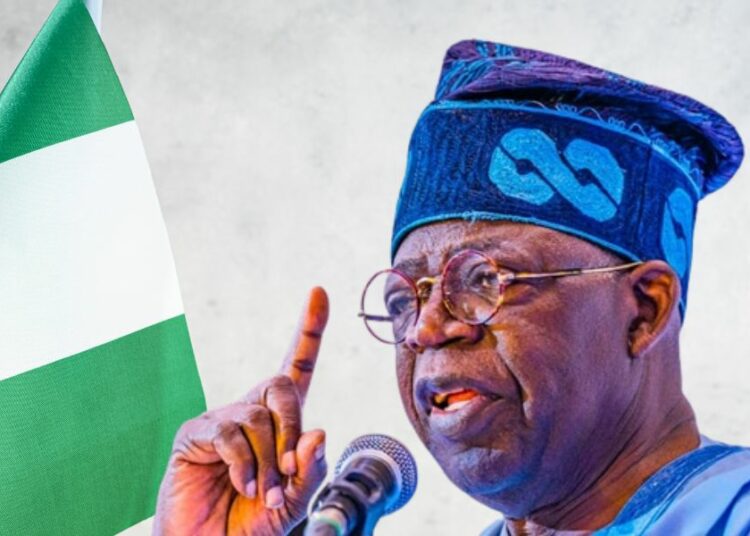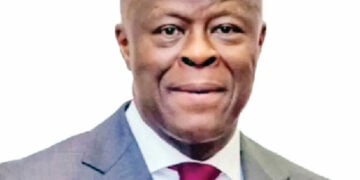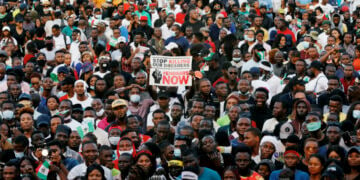There is a web of confusion swirling around the Bola Tinubu presidency. On one hand, sources from within his government are telling the media that there was an attempted coup d’état against his government. At the same time, the defense establishment has come out to give half throated denials. To understand what is really going on and why, Nigerians have to go back to the very beginning of Tinubu’s presidency, particularly in terms of the early messages he sent to the power structures that uphold the state, the different arms of government and where his priorities would lie. But just as important is how some of his predecessors also started in office and how their shortcomings would later manifest in both unexpected and predictable ways in later years. Whether it was Goodluck Jonathan making a promise that would prove to be his undoing, the beginning always foretold the end. The same can be said about Olusegun Obasanjo, Umaru Yar’Adua whose health challenges loomed large from the very beginning or Muhammadu Buhari who had unfinished business.
Had Buhari been asked about the defining moments of his life, August 27, 1985 would probably have been one of them. That was the day he was toppled as military head of state of Nigeria, Africa’s largest nation. Buhari himself first came to power in December 1983 after sacking a democratically elected president, Shehu Shagari, who was just one year into his second term in office. In a twist of fate, Buhari would later be elected president in 2015 after contesting in three failed attempts. But through his eight years in office, that August 27 coup would hang over his presidency. Though democratically elected, he shaped the country around a security structure and making some of his intelligence and service chiefs the longest serving in the country’s history. And yes, when it mattered, they were there for him. Without the loyalty of then Chief of Army Staff, Tukur Buratai, the EndSARS protests would probably have brought down his government. As an elected president, the protests were a sign Buhari had taken the people for granted. But the people weren’t the only ones. For a president coming from a military background and had been a victim of a coup, keeping his friends close and his enemies closer referred only to the intelligence agencies and the armed forces. That meant he neglected the justices of the Supreme Court and the politicians that got him to the presidency; oversights that later haunted him like a nightmare.
By some considerable measure, the National Intelligence Agency was the NorthStar among the security establishment during Buhari government. It managed to influence or even orchestrate events in Kenya and far away Finland. But it also eavesdropped on politically exposed Nigerians holding secret meetings in foreign lands. Weeks before the 2019, the Buhari government would force the resignation of the Chief Justice of Nigeria, Walter Onnoghen in extraordinary circumstances. According to Onnoghen himself, he was rumored to have met former vice president Atiku Abubakar, Buhari’s main rival for the election, in Dubai. A second neglect was the absence of a political structure within and outside the political party. It became glaring when the time came for Buhari to choose a successor. The president was left exposed and it was those manning the security structure he had built that ended up determining how the next president emerged.
Left to Olusegun Obasanjo, there was no real difference between Dodan Barracks and Aso Rock Villa. Yet, Obasanjo lived in one for only three years between 1979 and 1981 as a military head of state, chosen by a handful of colleagues to replace an assassinated leader, and lived in the other for eight long years as president elected by millions of Nigerians. But to the former president, everything was about command and control. That was how he chose to relate with the judiciary, it was how he related with the National Assembly and even with the members the political party that got him elected back in 1999. It would eventually open a rift and a constitutional standoff with his vice president. And though Obasanjo remains the country’s longest serving president, his inclination to the idea of command and control would end up being his ruin when he sought to extend his stay in office.
Every single president has a blind spot; an Achilles heel, which mostly stems from character and style of governance. There are indications of it right from the very beginning of the administration. Most presidents are never able to fix it and gaps at the beginning later manifest as gorges that undermine the president’s entire agenda. The first signs of cracks in President Obasanjo’s administration was the impeachment of Chuba Okadigbo as Senate President. Evans Enwerem had previously been impeached as president of the upper chamber. During Obasanjo’s eight-year presidency, Nigeria would ultimately have five different senate presidents. In the end though, Obasanjo’s confrontation with the Supreme Court was why and how Chibuzo Amaechi become governor of Rivers. He confrontation with his vice president led him to literally beg for second term. And while powerful public figures rallied to kill his third term agenda, it was Ken Nnamani, the last Senate President of the Obasanjo presidency that dealt the final and decisive blow.
One of the very first challenges Bola Tinubu faced after he was sworn in as president came from the military, the service chiefs to be precise. They thought they would wield the same influence and hold an equal status in the Tinubu government as they did under Buhari. The service chiefs voiced their opposition to the planned appointment of Nuhu Ribadu, who came from a police background, as National Security Adviser. The president’s response was to relieve them of their positions, sending a clear message to the entire armed forces. In quick succession, an even clearer message was sent to the judiciary; the judges of various courts and justices of the Supreme Court, promising to significantly raise their pay. The president showed which institutions of state were his top most priority. And now, there is talk in town of an attempted coup d’état.
It is ironic that the first sign of trouble for Tinubu and the stability of his government is reported to come from some officers attached to the Office of the National Security Adviser, Nuhu Ribadu and the military whose leaders were sacrificed for his sake. Early on, Tinubu also didn’t want anyone with a military background as Defense Minister. Never mind that we are in the third world. Yes, we are in a democracy. At the same time, Nigeria’s political history is intertwined with that of its military. The reported coup could easily be an attempt, in what some western observers would term as the deep state fighting back; an intelligence agency gone rogue or officers turned scoundrels. Either way, President Tinubu’s response was to again sack the service chiefs. It would make the second time heads of security agencies would be replaced because of an affront to the president. In the case of a coup d’état, it is also an attempt to overthrow the constitutional order, which should mean a criminal trial in an open court. But just as important is the breach that has opened between the president and the institution of the military with the sacking of the service chiefs. It is one of trust and one that suggests the president has no faith in the institution.
Former Minister of Works, Babatunde Fashola was once asked about differences between Buhari and Tinubu. According to the former Lagos governor, Buhari was prone to delegating power while Tinubu micromanages. It means there will be no cabal holding sway during Tinubu’s administration. But it could be why there is an appearance of a vacuum of power within the government. A similar vacuum emerged in Buhari’s government after the death of Abba Kyari. Internal forces in the government kept Ibrahim Gambari, Kyari’s successor, in a cage. And by then, Babagana Monguno, the president’s NSA had been significantly weakened. In essence, the ease with which Buhari delegated authority backfired. At least from the perspective of his ministers; without Abba Kyari, Buhari’s government became a free for all. Ministers did whatever ever they could get away with. More than anyone else, it was the Governor of the Central Bank, Godwin Emefiele that had a free hand and apparently had no limits.
It is well known that Obasanjo had enormous respect for his Chief of Staff, Abdullahi Mohammed, who had a quiet rivalry with then NSA, Aliyu Gusau. Obasanjo never had to tell his ministers to report Abdullahi Mohammed, they just did. In Buhari’s government, the rivalry between the Chief of Staff, Abba Kyari and the NSA, Monguno spilled out in the open.
A secondary level of people exercise power on a president’s behalf in most governments and in today’s language some could be described as Mr fix it. This exercise of authority creates centres of power within the government with each knowing its limits. There was Mohammed Ribadu in Tafawa Balewa’s government, Umaru Dikko during Shagari’s time, Tony Anenih in Obasanjo’s government. And there was Abba Ruma, Godsday Orubebe and Abdurrahman Dambazzau in subsequent governments.
With a command-and-control approach, Obasanjo thought he succeeded in subduing the National Assembly by impeaching leaders that did not agree with him. Yet, Ken Nnamani had the last laugh. Tinubu should not make similar mistakes. Rather than dismantle the security establishment, the president needs to adjust his own approach to governance. He might need a deputy national security adviser or a military-like figure as minister of defense, but the president has to show more trust and confidence in the people that work for him and delegate authority to them accordingly. Nigerians never like it when unelected officials exercise too much. But as can clearly be seen with unfolding events, the building blocks of a government can easily unravel without a cabal watching over the president.





